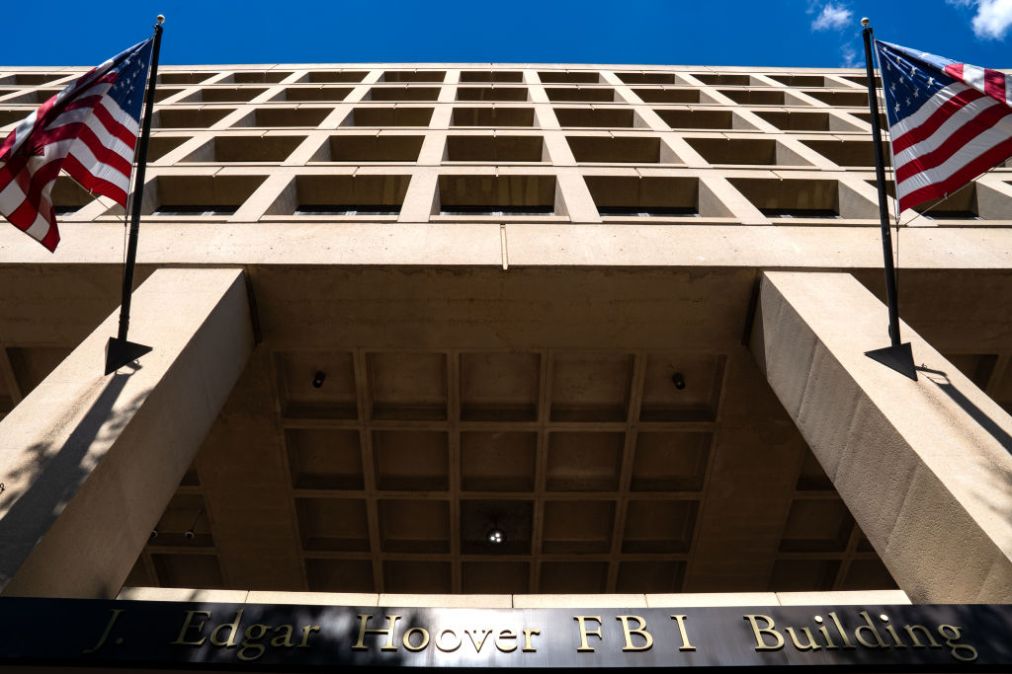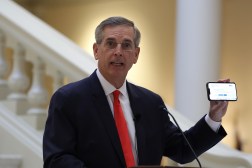FBI flags false videos impersonating agency, claiming Democratic ballot fraud

The FBI is warning that a pair of videos circulating online that purport to be from the bureau are fake, including one making false claims about arresting groups linked to the Democratic party for ballot fraud.
“The FBI is aware of two videos falsely claiming to be from the FBI relating to election security, one stating the FBI has apprehended linked groups committing ballot fraud and a second relating to the Second Gentleman,” the agency said in a statement Saturday.
In one of the videos viewed by CyberScoop, a voice plays over still photos of individuals wearing FBI shirts and other images claiming that “three linked groups have been apprehended for rigging early voting by mail in ballots.”
The video goes on to claim that lists of recently deceased U.S. citizens and Americans over the age of 90 were used “for electoral falsification.”
It also includes supposed quotes from the investigative journalist Eliot Higgins, who writes for Bellingcat, an organization that uses open-source research techniques to debunk false narratives and has been a constant thorn in the side of the Russian government.
In the video, Higgins is quoted as saying “we have seen this before in 2020” and while the FBI did a “great job” then “that does not mean the election will be transparent and honest.” The video ends by claiming “we don’t know how many such groups, acting on behalf of the Democrats, there are still in the United States.”
On Monday, Higgins responded, saying he had previously received emails from the individuals behind the effort “trying to get us engaged in the campaign.”
“These are part of a Russian disinformation campaign, and the quotes are fabricated, but it’s nice to know the Russians hold the value of my opinions in such high regard,” he wrote on X.
Higgins also noted that the use of fake QR verification codes in the video were “really dumb” as the FBI doesn’t use such codes and their inclusion made it easier to identify bot networks sharing the false content.
CyberScoop has not viewed the video related to Doug Emhoff, Vice President Kamala Harris’ husband, but a description provided by disinformation trackers described it as a video depicting the FBI claiming that that they will not investigate unspecified ties between Emhoff and a major government contractor, while claiming “any manipulation on this topic is interference in the US elections.”
The FBI said both videos and their underlying claims are fake.
“These videos are not authentic, are not from the FBI, and the depictions are false,” the agency said.
Darren Linvill, a professor at Clemson University and co-director of the Media Forensics Hub, said the video appears to be another piece of Russian-led disinformation targeting U.S. elections.
“The posts we see here are consistent with what we’ve seen from this campaign in the past and I believe it is likely this is also Doppelganger content,” Linvill told CyberScoop, referring to the threat group linked to Russian government contractors and President Vladimir Putin.
Linvill added Doppelganger’s posts don’t “tend to get a lot of engagement; it’s high volume and low-quality content. Sometimes they get lucky, however.”
The U.S. intelligence community has been warning for the past month that foreign actors would likely increase the dissemination of fake or manipulated media claiming voter fraud, corruption and other allegations meant to boost claims of a rigged election and reduce faith in the integrity of U.S. democracy.
In the past two weeks alone, the U.S. government and private researchers have called out multiple examples, including a fake video depicting the destruction of ballots cast for former President Donald Trump in Bucks County, Pa., and another video purporting to be from a Haitian immigrant claiming to have voted multiple times with multiple IDs.
11/04/2024: This story was updated with comments from Bellingcat founder Eliot Higgins






